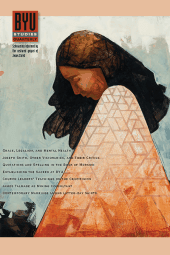Journal
The Danite Constitution and Theories of Democratic Justice in Frontier America

Title
The Danite Constitution and Theories of Democratic Justice in Frontier America
Publication Type
Journal Article
Year of Publication
2021
Authors
Park, Benjamin E. (Primary)
Journal
BYU Studies Quarterly
Pagination
43–64
Volume
60
Issue
1
Abstract
Historians of the Latter-day Saint tradition have often dissected the origins, members, and activities of the Danites—and much has been made about Joseph Smith’s involvement with the group—but what often gets overlooked is how this nascent organization drew from a broader political tradition of rights and belonging within a democratic society. The society was more than just a replication of frontier vigilante justice. Indeed, the creation of the Danites—as well as its constitution—represented the culmination of tense discussions concerning who can and cannot reside within a particular community. It looked both outward toward Missouri neighbors and inward toward Mormon dissenters. The Danite constitution was the Latter-day Saint attempt to stake their political right to not be forcibly removed while also justifying their liberty to define the boundaries of their own community.
This article traces the intellectual genealogy for this debate in an attempt to accomplish two objectives: first, to add layers to what happened in Far West, Missouri, in spring and summer 1838, including a better understanding of why the Saints were seen as so threatening to their neighbors and how the members of the faith justified their decision to fight back; and second, to better understand the broader antebellum culture’s struggle to define constitutional rights in an era where majoritarian rule seemed to verge on outright oppression. This article then concludes by highlighting how the actions in Missouri set the stage for another constitution written six years later in Nauvoo, another moment in which the Saints’ seemingly radical actions reflected broader political anxieties. Indeed, America’s democratic tradition is rife with moments of defining conflict, and the Mormon-Missouri War should be understood as exemplifying that uneven trajectory.
Subject Keywords
Bibliographic Citation
Terms of use
Items in the BMC Archive are made publicly available for non-commercial, private use. Inclusion within the BMC Archive does not imply endorsement. Items do not represent the official views of The Church of Jesus Christ of Latter-day Saints or of Book of Mormon Central.